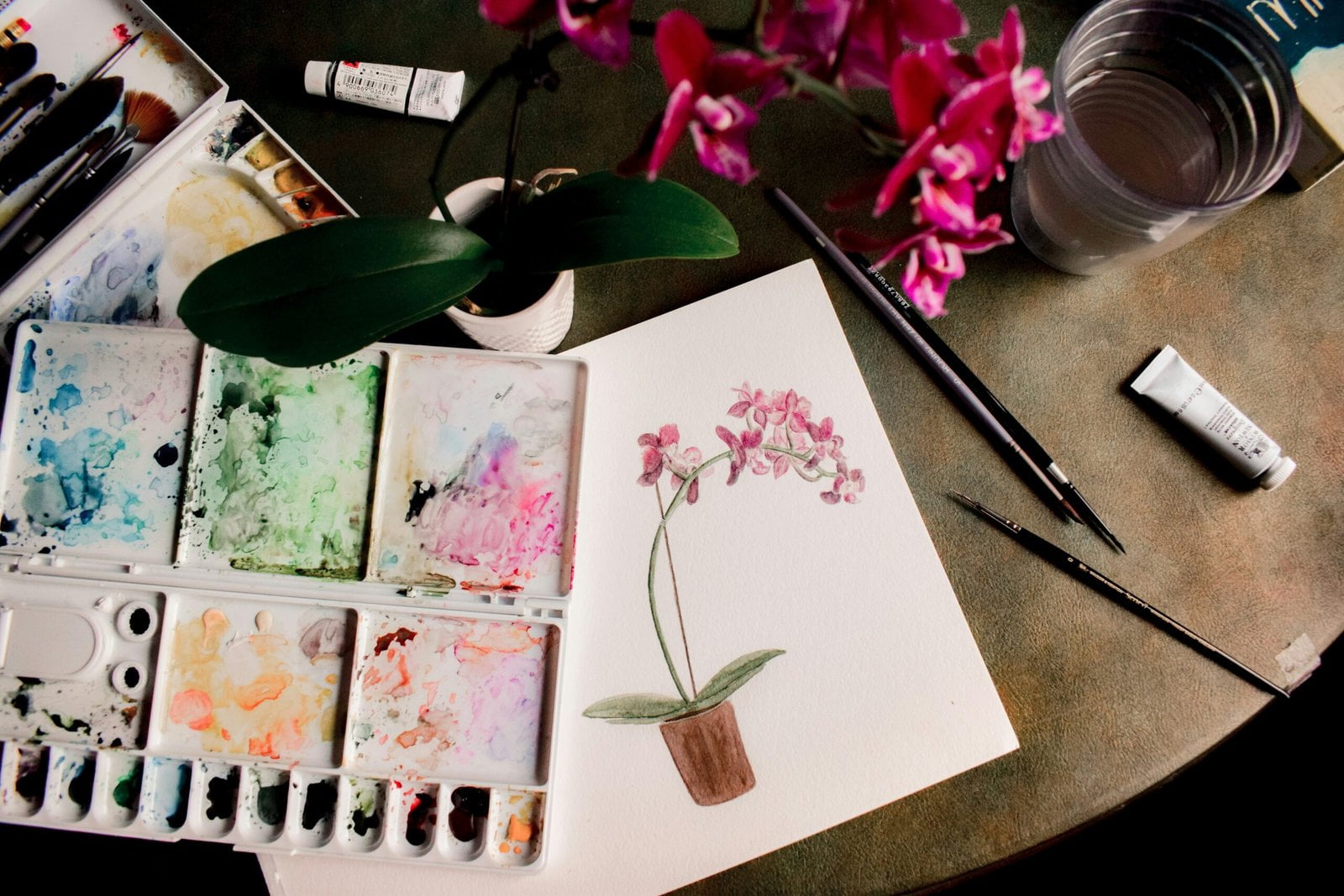
In today’s fast-paced world, the importance of having hobbies cannot be overstated. Engaging in activities that we love and are passionate about brings a myriad of benefits to our personal well-being. For many, hobbies serve as a critical outlet for stress relief and emotional balance. According to a study conducted by the National Institutes of Health, individuals who regularly participate in hobbies report significantly lower levels of stress and a more positive overall mood.
Hobbies are not just about killing time; they are essential for fostering creativity and innovation. When we immerse ourselves in activities outside the realm of our daily responsibilities, we allow our minds to wander and explore new ideas. This creative stimulation can enhance problem-solving skills and even translate into increased productivity in our professional lives. For instance, a survey by the American Psychological Association found that employees who engaged in creative hobbies were more likely to bring innovative solutions to their workplaces.
Beyond mental health and creativity, hobbies also play a vital role in social interaction and personal development. Group activities, such as team sports, book clubs, or crafting classes, offer opportunities to connect with like-minded individuals, fostering a sense of community and belonging. These social interactions can significantly improve our emotional well-being and support networks. A report by the Mayo Clinic highlights that social engagement through hobbies can lower the risk of depression and anxiety.
Moreover, hobbies contribute to our personal growth by allowing us to develop new skills and pursue interests that add depth to our lives. Whether it’s learning a new language, mastering a musical instrument, or honing culinary skills, these activities enrich our experiences and build our confidence. The diversity of hobbies available means there is something for everyone, catering to various interests and preferences.
In summary, the value of hobbies in modern life is manifold. They are not merely distractions but essential components of a balanced, fulfilling life. By reducing stress, enhancing creativity, fostering social connections, and promoting personal development, hobbies significantly contribute to our overall well-being.
Mental and Physical Health Benefits of Hobbies
Engaging in hobbies offers a multitude of mental and physical health benefits. Hobbies serve as a form of relaxation and stress relief, providing an essential escape from the pressures of daily life. Activities such as gardening, knitting, or painting can significantly reduce cortisol levels, the hormone associated with stress. A study published in the American Journal of Public Health highlights how creative activities can enhance emotional well-being, fostering a sense of accomplishment and boosting self-esteem.
Moreover, hobbies can improve cognitive functions. Participating in intellectually stimulating activities like puzzles, reading, or playing musical instruments promotes brain health. According to research from the Mayo Clinic, individuals who engage in mentally challenging hobbies are less likely to develop dementia and other cognitive impairments. This cognitive engagement helps in maintaining memory, problem-solving skills, and overall mental agility.
Hobbies also have the potential to lower the risk of certain diseases. For instance, regular participation in leisure activities has been linked to a reduced risk of heart disease, according to a study in the journal Circulation. This is partly due to the stress-reducing effects of hobbies, which can positively impact cardiovascular health.
On the physical side, active hobbies such as sports, dancing, or hiking contribute to better overall fitness levels. Physical activities not only improve muscle strength and endurance but also enhance cardiovascular health. A report from the Centers for Disease Control and Prevention (CDC) indicates that regular physical activity can help manage weight, reduce the risk of type 2 diabetes, and strengthen bones and muscles. Additionally, engaging in group activities like team sports can foster social connections, further enhancing mental well-being.
Expert opinions support these findings. Dr. Herbert Benson of Harvard Medical School notes that hobbies that induce a “relaxation response” can counteract the harmful effects of stress, promoting both mental and physical health. Similarly, Dr. Kelly Lambert, a neuroscientist, emphasizes the importance of “effort-driven rewards” from hobbies, which can lead to enhanced brain function and psychological resilience.
Steps to Discovering a Hobby That Fits You
Finding a hobby that aligns with your interests, lifestyle, and personality can be a rewarding endeavor. The process begins with introspection. Ask yourself a series of self-reflection questions to uncover your passions and preferences. What activities have you enjoyed in the past? What topics do you find intriguing? Are there skills you wish to develop? Understanding your inclinations will provide a solid foundation for your search.
Once you have a clearer idea of your interests, take the next step by exploring new activities. Enroll in classes that pique your curiosity, join clubs that align with your passions, or utilize online platforms that offer a myriad of courses and communities. The objective is to step out of your comfort zone and experiment with different hobbies until you find one that resonates with you.
Starting a new hobby can present challenges, but perseverance is key to overcoming them. Initial difficulties are common, but they should not deter you. Set small, achievable goals and gradually work your way up. Seek out support from fellow hobbyists, either in-person or through online forums, to stay motivated and inspired. Remember, the journey of learning and improving in a new hobby is part of the enjoyment.
Real-life examples can offer valuable insights and encouragement. Consider Jane’s experience: initially uncertain about her interests, she attended a local pottery class on a whim. Despite initial struggles with the techniques, Jane persisted and eventually discovered a passion for creating ceramic art. Similarly, Mark, who never considered himself particularly athletic, joined a hiking group and found a new appreciation for nature and physical fitness. These anecdotes illustrate that with exploration and determination, a fulfilling hobby can be found.
By following these steps—self-reflection, exploration, and perseverance—individuals can discover hobbies that not only enrich their lives but also provide a sense of fulfillment and joy.
Integrating Hobbies into Your Daily Routine
Finding time for hobbies amidst a busy schedule can be challenging, but with careful planning and time management strategies, it is possible to integrate hobbies seamlessly into your daily routine. One effective approach is to set aside specific times for hobby activities. By designating certain hours of the day or specific days of the week for hobbies, you can ensure that these activities become a regular part of your life. For instance, you might reserve an hour each evening or a couple of hours over the weekend for your chosen pastime.
Another key strategy is to incorporate hobbies into your daily routines. This could mean engaging in a hobby during a lunch break, commuting, or even while performing other tasks. For example, if you enjoy reading, you could listen to audiobooks during your commute. If you are passionate about photography, you might take your camera along on daily walks or errands.
Maintaining balance is crucial when integrating hobbies into your life. It is essential that hobbies enhance rather than overwhelm your schedule. Overcommitting to hobby activities can lead to stress and burnout. Therefore, it is important to be realistic about the time you can dedicate to hobbies without compromising other responsibilities. Prioritizing your tasks and being flexible with your schedule can help maintain this balance.
Staying motivated can sometimes be a challenge, especially when starting a new hobby. Setting small, achievable goals can help maintain enthusiasm and provide a sense of accomplishment. Additionally, joining hobby groups or communities can offer support and motivation. Engaging with others who share your interests can make the experience more enjoyable and foster a sense of accountability.
Many time management experts recommend using tools such as calendars, planners, or apps to track and schedule hobby time. These tools can help you visualize your week and ensure that you are allocating sufficient time for relaxation and enjoyment. By effectively managing your time and incorporating hobbies into your daily routine, you can enrich your life, reduce stress, and cultivate new skills and interests.





